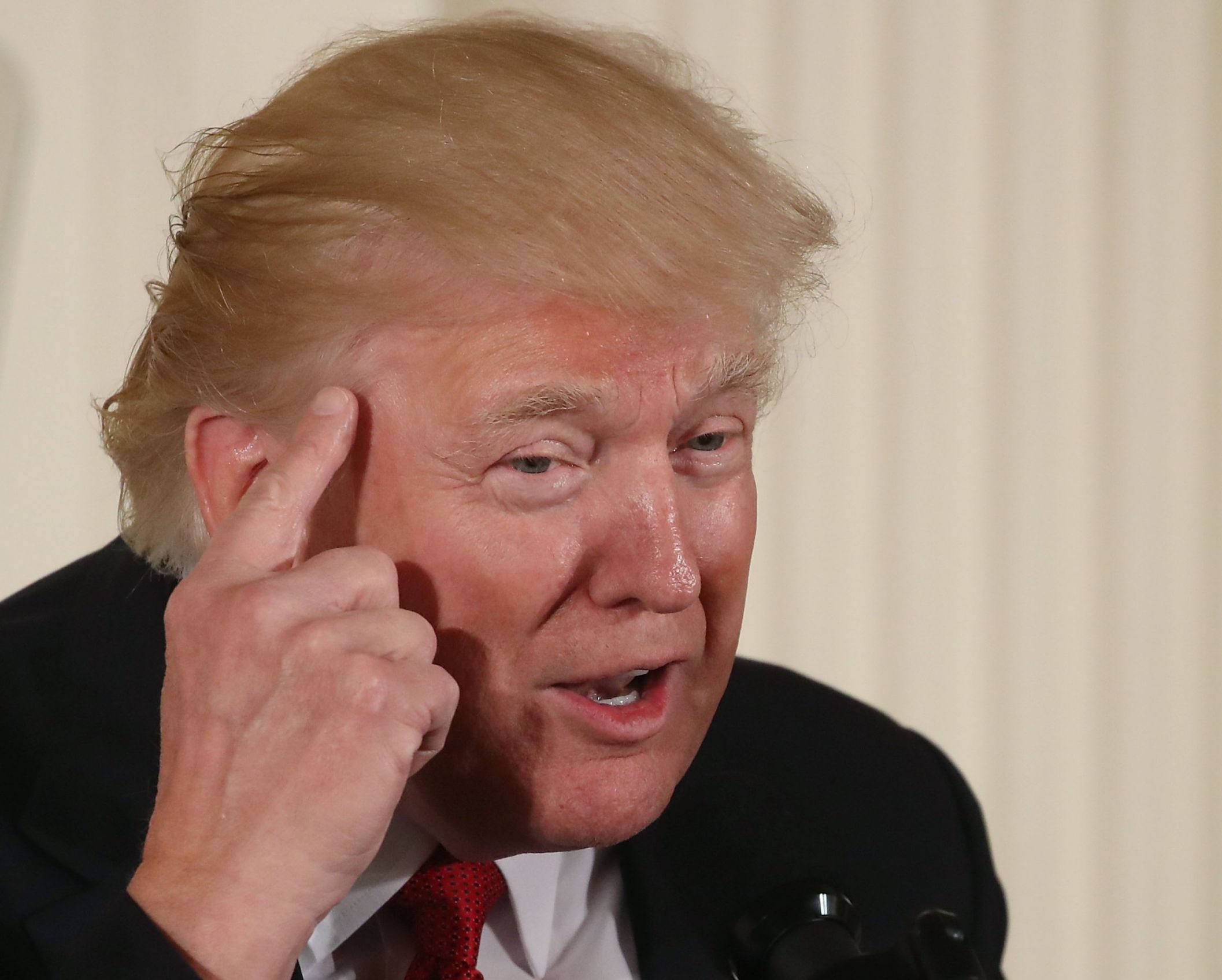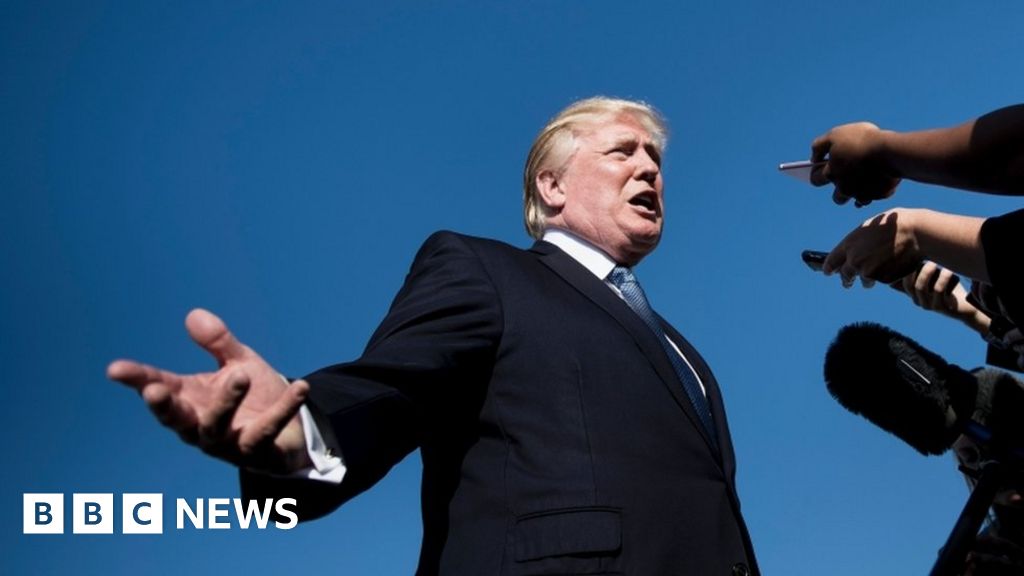Donald Trump remains one of the most polarizing public figures in modern history. Among the many debates surrounding him, the discussion about his intelligence, particularly his IQ, has captured significant attention. This article aims to provide a comprehensive exploration of what IQ means, how it is measured, and the claims regarding Trump's IQ. We will also examine how IQ fits into the broader context of politics and society. Whether you admire or criticize Trump, understanding the nuances of this topic can deepen our appreciation of his role in public life.
Intelligence is often equated with IQ scores, but this perspective overlooks the multifaceted nature of intelligence. Human intelligence encompasses a wide range of abilities that extend beyond numerical representation. The fascination with Trump's IQ reflects a deeper curiosity about how cognitive abilities influence leadership, decision-making, and public perception. In the following sections, we will delve into these aspects, analyzing the available information and its implications for political discourse.
As we explore this subject, we will also scrutinize the sources of information regarding Trump's IQ and evaluate their credibility. This discussion is not merely about Trump but also about what his story reveals about the role of intelligence in politics and public opinion. Let us begin by defining IQ and understanding its significance in this context.
Read also:Exploring The Life And Career Of William Abadie
Table of Contents
- What is IQ?
- How is IQ Measured?
- A Closer Look at Donald Trump
- The Claims Surrounding Trump's IQ
- Public Perceptions of Trump's Intelligence
- The Role of IQ in Politics
- Intelligence and Effective Leadership
- Conclusion
What is IQ?
IQ, or Intelligence Quotient, is a standardized measure designed to evaluate human cognitive abilities. It assesses a variety of mental functions, including reasoning, problem-solving, and comprehension. Introduced in the early 20th century, the concept of IQ has evolved significantly over time, with modern tests offering a more nuanced understanding of intellectual potential. IQ scores are derived from standardized tests that compare an individual's performance to a normative sample.
Key Components of IQ
- Verbal comprehension: The ability to understand and effectively use language.
- Working memory: The capacity to hold and manipulate information in the short term.
- Perceptual reasoning: The ability to solve problems using visual and spatial reasoning.
- Processing speed: The speed at which an individual processes and responds to information.
While IQ tests provide valuable insights into cognitive abilities, they are not a comprehensive measure of intelligence. Factors such as emotional intelligence, practical skills, and creative thinking also play crucial roles in determining an individual's overall intellectual capacity and real-world success.
How is IQ Measured?
IQ is typically assessed using standardized tests that have been rigorously developed and validated through extensive research. Two of the most widely recognized tests are the Stanford-Binet Intelligence Scales and the Wechsler Adult Intelligence Scale (WAIS). These tests evaluate various cognitive domains and produce a standardized score that reflects an individual's intellectual abilities relative to the general population.
It is important to note that IQ scores can be influenced by numerous factors, including cultural background, educational opportunities, and socio-economic status. As such, while IQ tests can offer meaningful insights, they should be interpreted cautiously and in conjunction with other measures of intelligence and achievement.
A Closer Look at Donald Trump
| Name | Donald John Trump |
|---|---|
| Date of Birth | June 14, 1946 |
| Place of Birth | Queens, New York City, USA |
| Profession | Businessman, Television Personality, Politician |
| Political Party | Republican |
| Presidency | 2017 - 2021 |
Donald Trump was born into a prominent family and was introduced to the world of business at an early age. After taking over his father's real estate company, he expanded its operations significantly, establishing himself as a prominent figure in the industry. His rise to national prominence was further fueled by his success as the host of the reality TV show "The Apprentice," which showcased his business acumen and charismatic personality. Trump's entry into politics culminated in his election as the 45th President of the United States in 2016, marking a pivotal moment in American political history.
The Claims Surrounding Trump's IQ
Donald Trump has frequently made bold statements about his intelligence, occasionally referencing his IQ in a self-promotional manner. However, the exact figure has never been verified publicly, leaving much room for speculation and debate. Some reports suggest that Trump's IQ may fall within the average range, while others claim it could be above average, citing his achievements in business and politics as evidence.
Read also:Cody Garbrandt The Rise Of A Ufc Icon And His Financial Empire
In 2016, during an interview, Trump claimed to possess a "very high IQ." Despite this assertion, no concrete evidence has emerged to substantiate his claim. The absence of verifiable data has sparked extensive discussions, with supporters praising his intellect and critics questioning his cognitive abilities. This lack of transparency has only fueled the ongoing debate about his intelligence.
Public Perceptions of Trump's Intelligence
The public's perception of Donald Trump's intelligence is deeply polarized. Supporters often highlight his business success and ability to connect with ordinary Americans as indicators of his intelligence. Critics, on the other hand, question his grasp of complex issues and decision-making capabilities. This divide extends to discussions about his IQ, with each side using it to support their respective arguments.
Factors Influencing Public Perception
- Media portrayal: The media plays a significant role in shaping public opinion, with different outlets emphasizing different aspects of Trump's personality and abilities.
- Political rhetoric: Trump's communication style and public statements often influence how people perceive his intelligence.
- Public speaking style: His unique approach to public speaking, characterized by simplicity and directness, has been both praised and criticized.
- Policy decisions: The outcomes of his policies and leadership choices contribute to the broader perception of his intellectual capabilities.
Media coverage has been instrumental in shaping the public's view of Trump. Some outlets focus on his accomplishments and leadership qualities, while others highlight his controversies and perceived shortcomings. This dichotomy has contributed to a fragmented understanding of his intelligence.
The Role of IQ in Politics
While IQ can influence political leadership, it is not the sole determinant of success. Emotional intelligence, social skills, and the ability to connect with constituents are equally important factors. In the case of Donald Trump, his appeal to a specific voter base has often overshadowed traditional metrics of intelligence. His unorthodox approach to politics has challenged conventional notions of what constitutes effective leadership.
Furthermore, the political landscape is evolving, with many voters placing greater emphasis on authenticity and relatability than on academic credentials or IQ scores. This shift underscores the idea that while IQ provides some insights, it is not the definitive measure of leadership potential.
Intelligence and Effective Leadership
Successful leadership requires a diverse set of qualities, with intelligence being just one component. Leaders must possess emotional intelligence, adaptability, and a clear vision for the future. While IQ can enhance problem-solving and strategic thinking, it does not guarantee effective leadership. In the case of Donald Trump, his unconventional approach to politics has redefined traditional expectations of leadership.
Trump's ability to inspire a loyal following demonstrates the importance of charisma and connection in leadership. His success in mobilizing supporters highlights the value of interpersonal skills and emotional intelligence, which may sometimes outweigh purely cognitive abilities in achieving leadership goals.
Conclusion
In conclusion, the question of Donald Trump's IQ is multifaceted and complex. While speculation abounds regarding his cognitive abilities, it is essential to recognize that IQ is only one measure of intellectual capacity and does not define a person's overall potential or capabilities. The public's perception of Trump is shaped by a variety of factors, including media representation and political discourse.
Trump's impact on American politics illustrates that effective leadership extends beyond IQ scores. It involves emotional intelligence, social skills, and the ability to resonate with the public. As we continue to explore the relationship between intelligence and leadership, it is crucial to consider the broader context and the diverse elements that contribute to successful governance.
We encourage you to share your thoughts on this topic. How do you perceive the relationship between IQ and leadership? Feel free to leave a comment below or share this article with others interested in the intersection of intelligence and politics.
Thank you for reading, and we hope you return to our site for more thought-provoking content!


